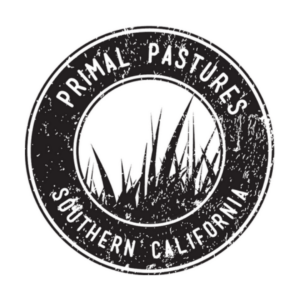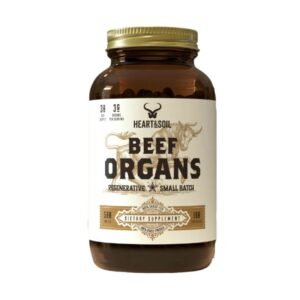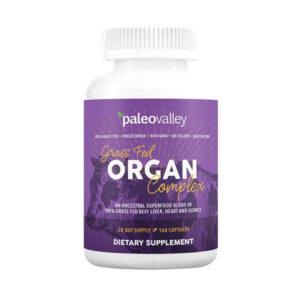Organ meats are popular around the globe, but in the States, they’ve taken a bit of a backstage. So, are organ meats healthy? Is beef liver really nutritious? Who should avoid consuming organ meat? Let’s delve into the rich history of organ meats, exploring their popularity worldwide, and giving a nod to the often overlooked nutritional benefits.
Keep reading to learn more!
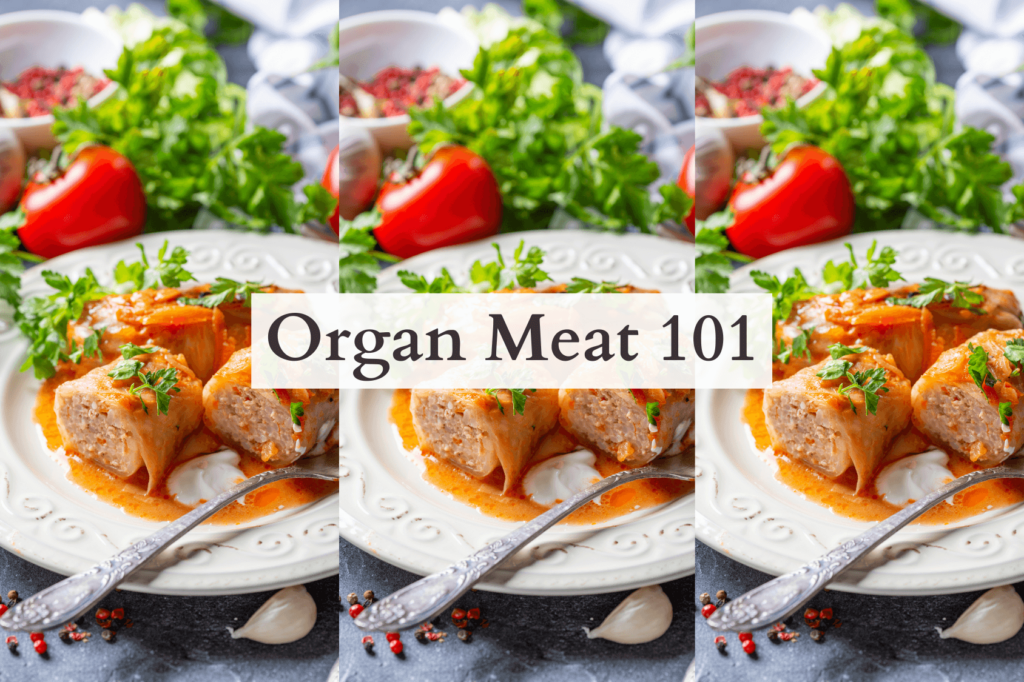
Note: This article contains affiliate links, meaning In On Around will make a small commission at no additional cost to you. This helps us maintain the site. As always, we value full transparency & only work with brands we love and trust.
Author: In On Around Founder & CEO, Catherine Power.
- Published On: February 7, 2024
- Updated On: April 10, 2024
- Organ meats, like beef liver, are very nutritious. They’re oftentimes overlooked in American cuisine.
- When choosing organ meats, prioritize 100% organic, pasture-raised, and grass-fed options while avoiding preservatives. Support farmers engaged in regenerative agriculture for ethical and sustainable practices.
- Best Meat Brands = Primal Pastures, Force of Nature
- Best Supplements = Heart & Soil, Ancestral Supplements, Paleo Valley
Table of Contents
What Are Organ Meats? What is Offal?
Organ meats, also known as offal, might not win any popularity contests at first, but don’t let the initial hesitation fool you. From the 1940s to the 1970s, these nutrient-rich cuts gradually faded from the standard American diet, and the saying “chopped liver” started carrying a negative connotation. However, organ meats are culinary treasures, referring to the internal organs of animals consumed as food.
Despite their initial unappealing reputation, these cuts boast a wealth of vitamins, minerals, and essential nutrients, making them valuable additions to diverse culinary traditions worldwide. Whether liver, kidneys, or other internal organs, the specific types of offal enjoyed vary based on cultural, regional, and individual preferences. So, let’s dive in and discover why they’re more than meets the eye!
What Are The Different Types Of Organ Meats?
There are many different types of organ meat, each with its own unique textures, potential health benefits, and consistencies.
Common examples of organ meats or offal include:
- Liver: Liver is a nutrient powerhouse, rich in vitamins such as A and B12, as well as iron and other minerals. It is often considered one of the most nutritious organ meats.
- Kidneys: Kidneys are a good source of protein, B vitamins, and essential minerals like iron and zinc.
- Heart: Heart meat is lean and packed with nutrients, including B vitamins, iron, zinc, and coenzyme Q10.
- Brain: Although less commonly consumed in some cultures, brain tissue is a source of omega-3 fatty acids and essential nutrients for brain health.
- Tongue: Tongue is a muscle organ that is tender when cooked and is a good source of protein and certain minerals.
- Tripe: Tripe is the lining of the stomach, often used in various culinary dishes. It is a source of protein and can be rich in certain vitamins and minerals.
- Sweetbreads: Sweetbreads are thymus or pancreas glands and are valued for their delicate flavor and tender texture.
These organ meats were traditionally an integral part of many diets around the world and were highly valued for their nutritional density. While they have become less popular in some Western diets, there is a renewed interest in incorporating organ meats into modern eating patterns.
Organ meats are making a big comeback, especially within the holistic health space.
Organ meats are very nutritious! They’ve been a part of the human diet ever since the birth of cooking.
Health Benefits of Eating Organ Meat
There are many potential health benefits to eating high-quality organ meats, such as… [1, 2]
- High Levels of Iron:
- Organ meats, particularly liver, are exceptional sources of heme iron, the form of iron found in animal tissues. Heme iron is highly bioavailable – it helps in the prevention and treatment of iron-deficiency anemia. Adequate iron levels support oxygen transport in the blood and contribute to overall energy levels.
- Rich in Protein:
- Organ meats are rich in high-quality protein, containing all essential amino acids. Protein is crucial for muscle development, tissue repair, and the production of enzymes and hormones.
- Full of Vitamins:
- Vitamin A: Essential for vision, immune function, and skin health.
- Vitamin B12: Vital for neurological health, red blood cell formation, and DNA synthesis.
- Vitamin B6: Plays a role in cognitive development, immune function, and metabolism.
- Vitamin D: Supports bone health, immune function, and overall well-being.
- Vitamin E: An antioxidant that helps protect cells from oxidative damage.
- Vitamin K: Important for blood clotting and bone metabolism.
- Rich in Minerals:
- Magnesium: Supports muscle and nerve function, blood glucose control, and bone health.
- Selenium: Acts as an antioxidant, supporting the immune system and thyroid function.
- Zinc: Essential for immune function, wound healing, and DNA synthesis.
- Contains Alpha-Lipoic Acid (ALA):
- Organ meats, such as liver, contain alpha-lipoic acid (ALA), an antioxidant that protects mitochondria (aka, the “powerhouse” of the cell). ALA may contribute to cellular energy production and help combat oxidative stress.
- Increased Energy:
- The combination of iron, protein, and other essential nutrients in organ meats can contribute to increased energy levels, making them a valuable addition to a balanced diet.
- Lower Risk of Alzheimer’s Disease:
- Some studies suggest that the nutrients found in organ meats, including omega-3 fatty acids and B vitamins, may be associated with a reduced risk of cognitive decline and Alzheimer’s Disease.
- Rich in Fatty Acids:
- Certain organ meats, like brain tissue and heart, contain beneficial fatty acids, including omega-3s. These fats are essential for brain health, cardiovascular function, and may have anti-inflammatory properties.
Plus, organ meat is typically more affordable than premium cuts of meat, like steak. We should embrace the fact that organ meats utilize the full animal, thus being more sustainable and honoring their sacrifice.
Health Risks From Eating Organ Meat
There are some potential risks associated with eating organ meats, such as: [3, 4]
- High in Saturated Fat and Cholesterol:
- Organ meats, especially certain cuts, can be high in saturated fat and cholesterol. Individuals with heart disease or high cholesterol levels should be mindful of their intake, including excessive consumption of saturated fats.
- Excess Iron and Vitamin A Levels:
- While iron is essential for health, excessive intake from organ meats, particularly liver, can lead to iron overload (although this is rare). Consuming too much liver can also result in too much vitamin A, which can lead to nausea, dizziness, and, in extreme cases, toxicity.
- Fatty Liver Disease:
- Overconsumption of organ meats, particularly those high in fat, may contribute to fatty liver disease, leading to liver inflammation.
- Aggravation of Gout Symptoms:
- Organ meats contain high levels of purines, which can be broken down into uric acid. Elevated levels of uric acid may exacerbate symptoms of gout, which is a form of arthritis.
- Mad Cow Disease (Bovine Spongiform Encephalopathy – BSE):
- Although the risk has decreased significantly in recent years, there is a historical concern about the transmission of prion diseases, such as BSE, through contaminated beef. Proper sourcing and monitoring is important. This is a risk in all beef products, not just organ meats.
- Bacterial Contamination:
- Like most fresh food, if it’s not harvested, cooked, or stored properly, there is a risk of bacterial contamination. This can lead to foodborne illnesses such as salmonella or E. coli infections. Thorough cooking and adherence to food safety practices are essential in reducing this risk.
It’s important to be aware of these potential health risks and to consume organ meats in moderation. As always, chat with your doctor.
Humans evolved to eat a balanced diet that includes organ meats.
Is It Safe To Eat Organ Meat?
Yes, overall it is safe to eat organ meat as long as it’s properly prepared, procured, and stored. As with all meat, it’s important to consume meat in moderation. Too much of a good thing can cause problems. Organ meats are nutrient-dense and offer various health benefits, but moderation is key due to potential risks associated with excessive intake of certain nutrients like iron and vitamin A.
Proper cooking and storage are crucial to minimize the risk of bacterial contamination. Individuals with specific health conditions, such as heart disease or gout, should chat with their doctor first. Most importantly, pregnant women need to be mindful of organ meat consumption, since high levels of Vitamin A can lead to birth defects.
Quality Is Key!
Don’t Organ Meats, Like Liver, Store Toxins?
People often worry about toxins in organ meats, like the liver, because these nutrient-packed tissues are known for filtering and getting rid of harmful substances in the body… but let’s bust that myth!
While organ meats function as filters in the body, they do not store toxins themselves. For instance, the liver achieves this by accumulating fat-soluble vitamins and nutrients, making it a nutritionally rich food source. It’s important to note that the toxins removed by the liver are stored in fatty tissues, not within the liver itself.
Limit the intake of highly processed meat – you definitely don’t need it at every meal! Eating HIGH-QUALITY meat can be part of a well-balanced diet.
How To Find High-Quality Organ Meat
Look for the following when shopping for organ meat:
- 100% organic
- Pasture-raised or regeneratively-farmed
- Grass-fed and grass-finished
- Preservative-free (Free of: Nitrites, celery extract, celery powder, celery juice, celery salt)
As with all meat, support the farmers who are doing it right with regenerative agriculture (aka farming in the most natural way possible)! You don’t need to eat meat at every meal. In reality, most diets should consist of 80%+ plants.
Want to learn how to learn more about the best meat brands? Check out this article for more info: What Is The Healthiest Lunch Meat? Processed Meat 101
Look For: Organic Pasture-raised Grass-fed Grass-finished Preservative-free
Best Organ Meat Brands
While there are many great organ meat sources available (especially if it’s local), here are some great options available for sale online.
Be sure to check out your local organic or regenerative farms! They oftentimes sell organ meats as well. The more local, the better!
- They offer typical cuts of meat, as well as chicken liver, beef heart, and more.
- They offer a Regenerative Beef Ancestral Blend, which includes ground beef, beef liver, and beef heart. This is a great blend to start with if you’re worried about the taste since it mostly tastes like regular ground beef.
- They also offer a bison blend, which is available in-store at many Whole Foods Markets.
- Their Grassfed Paleo Ground Beef blend includes a mix of ground beef, beef liver, beef heart, beef spleen, and beef kidney.
- Grass-fed on a regenerative farm!
They sell grass-fed beef liver jerky. Clean ingredients and a great snack!
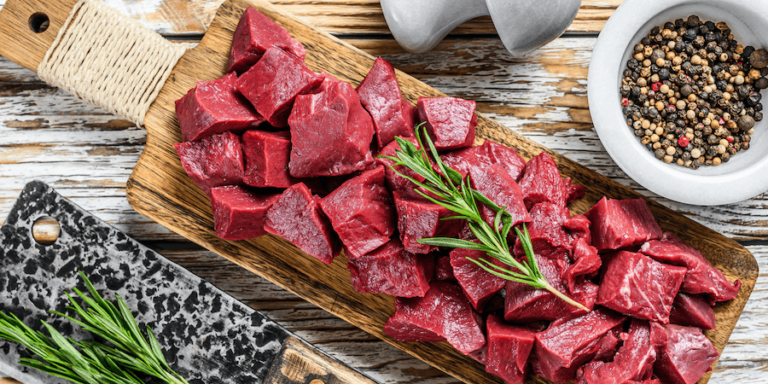
Best Organ Meat Supplements
Can’t stand the taste of organ meat? Try a supplement! As always, chat with your doctor before starting a new supplement routine.
We requested Certificates of Analysis/product quality reports for the below brands:
Use discount code INONAROUND for 10% off
- We requested a copy of their COA, and they sent ALL of their recent COAs for their products – bravo!
- Here are the results from their March 2023 manufacturing run:
- Lead: 0.041 mcg/serving
- Mercury: none detected
- Arsenic: 0.033 mcg/serving
- Cadmium: 0.232 mcg/serving
- They have their most recent COA directly on their website (yay for transparency!)
- More information on their testing can be found here.
- For their January 2022 manufacturing date:
- Lead: 0.07 ppm
- Mercury: none detected
- Arsenic: 0.04 ppm
- Cadmium: 0.19 ppm
- The organ meats are sourced from healthy pasture-raised, grass-fed, and grass-finished cows.
- In fact, they sent me their heavy metal test results from 2012-2017 too.
- We requested their Certificate of Analysis and they quickly responded. For their February 2023 manufacturing date:
- Lead: 0.034 mcg/serving
- Mercury: 0.010 mc/serving
- Arsenic: 0.004 mcg/serving
- Cadmium: 0.323 mcg/serving
Final Thoughts: Is Beef Liver Healthy?
When choosing organ meats, prioritize 100% organic, pasture-raised, and grass-fed options while avoiding preservatives. Support farmers engaged in regenerative agriculture for ethical and sustainable practices. Remember, a balanced diet should primarily consist of plant-based foods, with organ meats serving as a nutrient-dense complement rather than a daily staple.
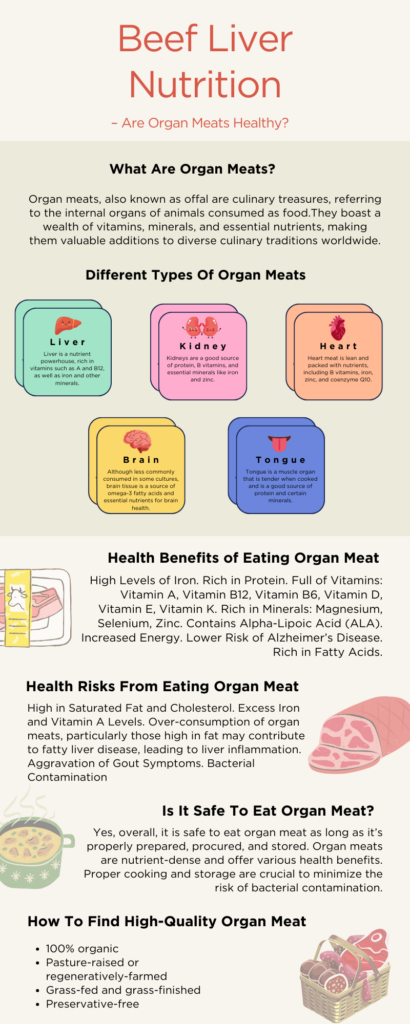
Do You Eat Organ Meat?
Let me know your thoughts and key takeaways in the comments below!
xoxo,

Want to read more? Check out our other articles here!
Other references on Beef Liver Nutrition – Are Organ Meats Healthy? from: Healthline, Today’s Dietitian, Cleveland Clinic, Mirage, Wellness Mama, Prenatal Nutritionist
Copyright In On Around LLC 2024 ©. The statements made on this website have not been evaluated by the FDA (U.S. Food & Drug Administration). They are not intended to diagnose, treat, cure, or prevent any disease. The information provided by this website should not be used as individual medical advice and you should always consult your doctor for individual recommendations and treatment. The information contained in this site is provided on an “as is” basis. Related to this site, there are no guarantees of completeness, accuracy, usefulness, or timeliness. In On Around LLC assumes no responsibility or liability for any errors or omissions in the content of this site.







